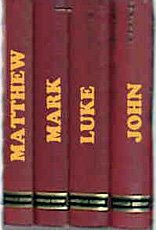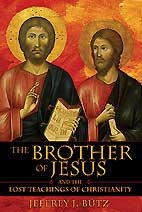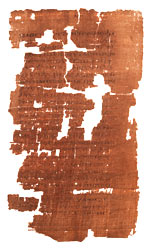
Fred Coulter certainly has a way with words. For those unfamiliar with the more obscure byways of COG Christianity, Fred is a former WCG minister who went out independently in the late 70s. He is a self-styled scholar, has produced his own New Testament translation, and runs his very own niche COGlet.
Here's a recent slice of Coulter text that took my eye in a full page ad appearing in the latest issue of The Journal: "Did You Know... The Apostles wrote the Gospels in their lifetimes?"
Profound, huh! I mean, if the apostles (was Mark an apostle? was Luke?) indeed wrote the Gospels that bear their names, then they would have to have written in their own lifetimes... wouldn't they? Or have I missed something?
Of course there is always posthumous publication, but I'm guessing that the actual writing usually occurs before the coffin is lowered into the grave... unless Fred is a secret devotee of psychic channelling (but that seems unlikely.)
What Fred seems to be maintaining is that Matthew wrote Matthew, Mark wrote Mark, Luke... but you get the picture. While that seems logical, there are a few pesky facts to take into account.
The Gospels circulated a long time before agreement was reached on who actually wrote them. Nowhere in these documents is there a direct statement of authorship (Hi, I'm John the apostle), and the titles ("Gospel according to...") were added later. Even the author of Luke, who tells his readers up-front that he's writing to Theophilus, keeps his identity to himself. The ascriptions we have are part tradition and part guesswork. Maybe they got it right, maybe not. For example, many early Christians were convinced that John's Gospel was the work of a heretic called Cerinthus. What is certain is that Paul's letters (the seven genuine ones) predate the Gospels, that Mark is the earliest of the four, and that the author of John was a different person to the disciple of that name (though he may have been used as a source).
In trying to defend the truth of the Bible it's all too easy to think the issue is the truth about the Bible rather than the truth which the Bible points to. To get hung up on the former is bibliolatry, and leads to ridiculous claims which in turn undermine the credibility of the Christian message.
But I'm sure Fred will disagree with that... and probably in his own lifetime.





